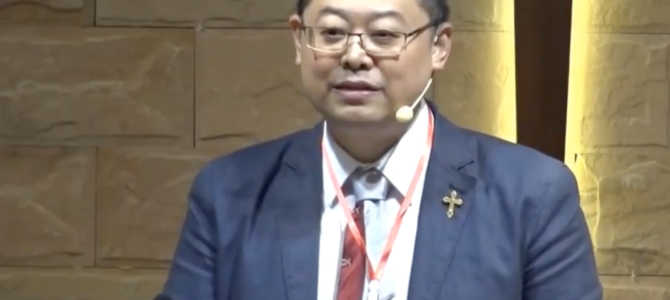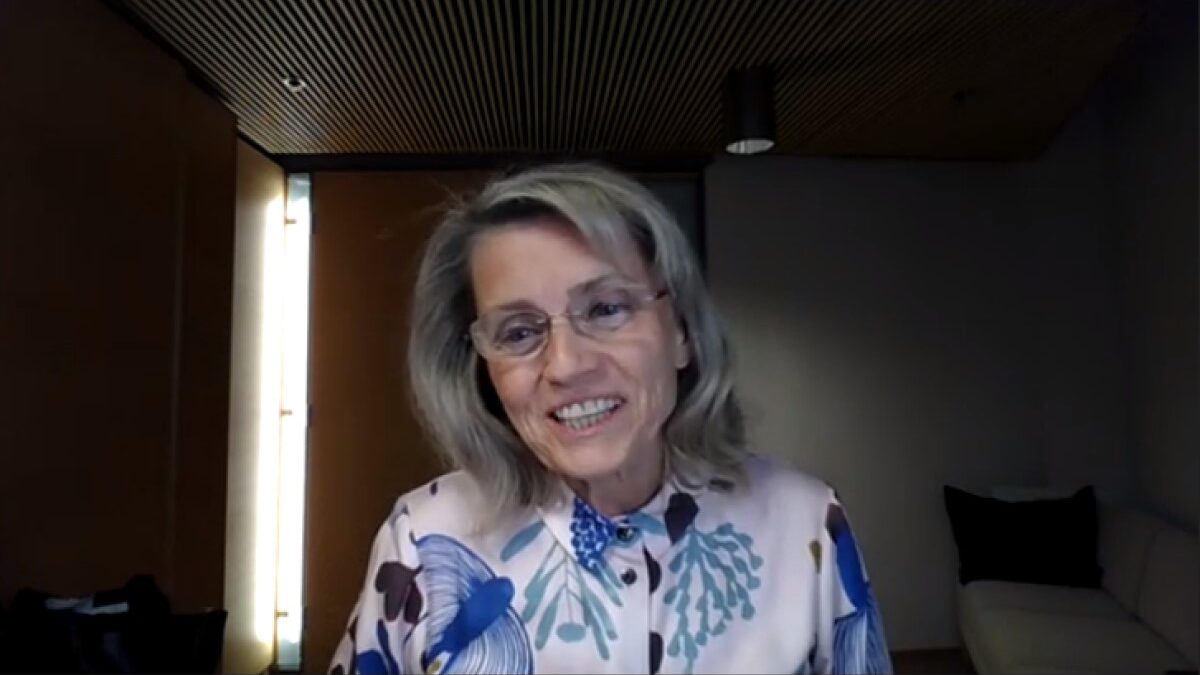
This Dec. 9 marks the one-year anniversary of the Chinese government’s raid on the Early Rain Covenant Church in the city of Chengdu, in Sichuan province, China. Chinese police arrested about 100 church members, including Pastor Wang Yi and his wife Jiang Rong, and ravaged then sealed church property.
One year later, most of the arrested church members including Wang’s wife have been released, although Jiang’s movement is restricted and she is under government surveillance. However, there is still no word about the fate of Wang and several other church elders.
Wang founded the Early Rain Church in 2008. Unlike other house churches that have gone to great lengths to avoid attracting the government’s attention, the Early Rain Church never sought to hide its gatherings from the public eye, even posting its sermons online. By 2018, Early Rain had become a prominent house church presence with 500 followers and its Sunday sermons often attracting as many as 800 attendees. It also ran a kindergarten, a seminary, and a Bible college.
Prior to the December raid, Wang and his wife, along with two dozen churchgoers, were detained by Chinese police on June 4, 2018, a few hours before their planned prayer service for the victims of the Tiananmen Square massacre. They were later released, but the government closely monitored their day-to-day activities.
How the Chinese Government Persecutes Christians
The Chinese Communist Party has a long history of brutally suppressing religious beliefs because it is convinced any religion is a direct challenge to state atheism. Therefore, any gathering of another religion’s believers poses a potential threat to the state.
Since 1980, with its economic opening, China has become somewhat more tolerant of various religious beliefs, and the Communist Party has preferred to manage believers from behind the scenes. China has seen tremendous growth in Christians: An estimated 100 million Chinese are Christians today, outnumbering the 90 million members of Chinese Communist Party.
However, under Chinese leader Xi Jinping, who demands from citizens absolute obedience and loyalty, the government has tightened its control of Chinese Christians. The Chinese faithful have seen an increased “Sinicization” of churches; in state-sanctioned churches, photos of Xi and Chairman Mao are often seen hanging next to a cross. Before church services, congregations usually sing the Chinese national anthem and other songs praising Xi.
Churchgoers are told to be patriots and to first trust the Communist Party, which even has a plan for “‘retranslating and annotating’ the Bible to find commonalities with socialism and establish a ‘correct understanding’ of the text.” In some impoverished areas, Communist Party officials have told villagers to replace their posters of Jesus to portraits of Xi in order to qualify for the government’s poverty relief.
Not surprisingly, the majority of Chinese Christians choose to worship in house churches, although under Xi, the Chinese government’s repression against those who attend house churches has intensified. Hundreds of rooftop crosses have been forcefully removed; some churches have been outlawed and forced to shut down, others demolished. Certain churches are allowed to stay open but had to install CCTV cameras so local authorities can monitor and be notified of all churchgoers.
The worst persecution against Chinese Christians is their detention based on trumped up charges. ChinaAid, a Texas-based Christian human rights organization, says at least 10,000 cases of the detention of Christians occurred in China in 2018 alone. ChinaAid publishes a report on “Chinese Government Persecution of Christians and Churches in Mainland China” annually.
Pastor Wang Condemns Chinese Persecution
Pastor Wang has been an outspoken critic of the government’s Sinicization of churches and its increased persecution of Christians. According to the Wall Street Journal, in the summer of 2018, Wang organized a petition condemning the government’s crackdown on house churches. More than 400 pastors around China signed the petition.
Later, in a social media post titled “Meditations on the Religious War,” Wang criticized the Chinese government for compelling Christians to treat Xi like a god. In Wang’s words, such ideology “is morally incompatible with the Christian faith and all those who uphold freedom of the mind and the thought.” His activism may have been the primary contributory factor for his arrest later that December.
Back in September, knowing he had a target on his back and could be subject to losing his freedom at any time, Wang composed a letter titled “My Declaration of Faithful Disobedience.” It is so eloquent, and it reminds me of Martin Luther King Jr.’s “Letter from a Birmingham Jail.”
In his letter, Wang wrote, “I hope God uses me, by means of first losing my personal freedom, to tell those who have deprived me of my personal freedom that there is an authority higher than their authority, and that there is a freedom that they cannot restrain, a freedom that fills the church of the crucified and risen Jesus Christ.”
Wang condemned the Chinese government’s persecution of churches and churchgoers as “the most wicked and the most horrendous evil of Chinese society.” He said such action “is not only a sin against Christians. It is also a sin against all non-Christians. For the government is brutally and ruthlessly threatening them and hindering them from coming to Jesus. There is no greater wickedness in the world than this.”
Pastor Wang Remains Faithful
No matter what happens to him, Pastor Wang remains faithful because “on earth, there has only ever been a thousand-year church. There has never been a thousand-year government. There is only eternal faith. There is no eternal power.” I have read this letter many times, and each time, I am touched by his faith, courage, and thoughtfulness.
Wang’s family and friends have not seen him since Dec. 9, 2018, nor do they know his whereabouts. He was accused of “inciting subversion,” a serious charge that may carry a long prison sentence. Yet Wang has not even seen his day in court, after being in detention for a year.
The last update about Wang was that last month, Chinese authorities in Sichuan prevented Wang’s lawyer from representing him. In China, representing political prisoners can be risky business. Often, the lawyers who courageously take on such cases end up in prison themselves before they even have the chance to defend their clients.
This Christmas, as we Americans gather with our families and friends to celebrate the birth of our Lord Jesus Christ, I hope you will take some time to read Pastor Wang’s letter. It will encourage and inspire you. It is also a good reminder that we ought to be thankful we live in a country where we have the freedom to practice our faith. Furthermore, let us all say a prayer for Pastor Wang and the thousands of innocent Christians facing persecution under the oppressive Chinese regime.









